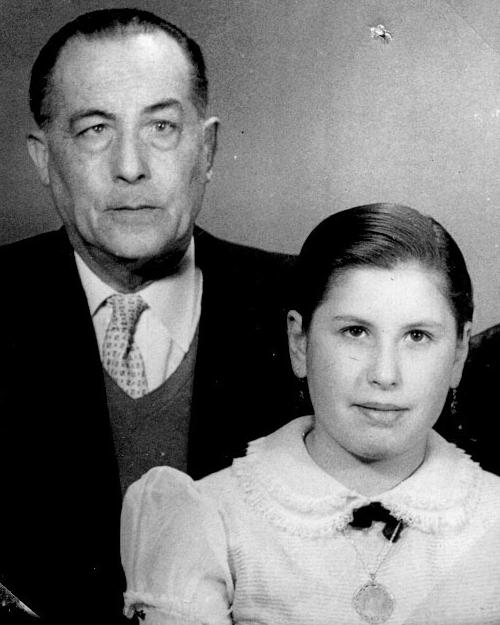Antonio Soto (syndicalist) on:
[Wikipedia]
[Google]
[Amazon]
Antonio Soto Canalejo (1897–1963), also known as "''El Gallego'' Soto", was one of the principal anarcho-syndicalist leaders in the rural strikes in Patagonia of
 The rural labor movement during the second 1921 Patagonia strike was divided into two parts: the column of Antonio Soto and the column of
The rural labor movement during the second 1921 Patagonia strike was divided into two parts: the column of Antonio Soto and the column of
«La segunda vuelta de Antonio Soto»
artículo del 13 de octubre de 2007 en el diario '' Página/12'' (Buenos Aires). In 1933 he traveled incognito to
In 1933 he traveled incognito to
Argentina
Argentina (), officially the Argentine Republic ( es, link=no, República Argentina), is a country in the southern half of South America. Argentina covers an area of , making it the second-largest country in South America after Brazil, th ...
in 1921.
Biography
 The rural labor movement during the second 1921 Patagonia strike was divided into two parts: the column of Antonio Soto and the column of
The rural labor movement during the second 1921 Patagonia strike was divided into two parts: the column of Antonio Soto and the column of José Font
José is a predominantly Spanish and Portuguese form of the given name Joseph. While spelled alike, this name is pronounced differently in each language: Spanish ; Portuguese (or ).
In French, the name ''José'', pronounced , is an old vernacul ...
(better known as ''Facón Grande''). Until the beginning of December, Soto had dominated all the area south of Argentino Lake
Lago Argentino is a lake in the Patagonian province of Santa Cruz, Argentina, at . It is the biggest freshwater lake in Argentina, with a surface area of (maximum width: ). It has an average depth of , and a maximum depth of .
The lake lies with ...
and of the Viedma Lake
Viedma Lake ( es, Lago Viedma, ) is a Patagonian lake in the province of Santa Cruz, Argentina, situated near its border with Chile. Measuring approximately 50 miles (80 kilometers) in length, it is a major elongated trough lake formed from melt ...
, and his contingent was the biggest (with around 600 workers). They operated from the ''estancia La Anita''.
On 7 December, the army was nearby and the workers met in an assembly. Juan Farina, a Chilean worker, proposed that they surrender to the army and a majority of the peasants supported the decision. Soto argued that it was necessary to continue the strike, but ultimately agrees to send two men to parley with the army and to discuss surrender, guarantees, and the fulfilment of the terms of the agreement made by Varela the year before. Upon arrival at the military encampment, the two men were immediately executed.
When the army arrived at ''estancia La Anita'' and demanded the unconditional surrender of all of the striking workers. The leaders of the strike met in an assembly, where Soto gave a dramatic speech but was ultimately ignored by a majority of the assembly, who eventually decided to surrender and end the strike. Upon their surrender, Varela's troops executed a large number of the workers. Soto and twelve men escaped on horseback to Chile
Chile, officially the Republic of Chile, is a country in the western part of South America. It is the southernmost country in the world, and the closest to Antarctica, occupying a long and narrow strip of land between the Andes to the east a ...
and was never captured by the authorities.Bayer, Osvaldo (2007)«La segunda vuelta de Antonio Soto»
artículo del 13 de octubre de 2007 en el diario '' Página/12'' (Buenos Aires).
 In 1933 he traveled incognito to
In 1933 he traveled incognito to Río Gallegos
Rio or Río is the Portuguese, Spanish, Italian, and Maltese word for "river". When spoken on its own, the word often means Rio de Janeiro, a major city in Brazil.
Rio or Río may also refer to:
Geography Brazil
* Rio de Janeiro
* Rio do Sul, a ...
to explain his involvement in the 1921 strike, where he made contact with his comrades and prepared an act that was, compared to the previous strike, a disaster. Soto was immediately expelled from the province by the governor Gregores. In exile, he became less militant but never broke with anarchism.Bayer, Osvaldo (2004): ''La Patagonia Rebelde'', tomo III, págs. 203–240. Buenos Aires: Booket, 2004.
Soto settled in Punta Arenas and managed a small hotel, which served as a meeting place of libertarians
Libertarianism (from french: libertaire, "libertarian"; from la, libertas, "freedom") is a political philosophy that upholds liberty as a core value. Libertarians seek to maximize autonomy and political freedom, and Minarchism, minimize the ...
, intellectuals, and free-thinkers. He also founded the ''Centro Republicano Español'', the ''Centro Gallego'', a branch of the Red Cross
The International Red Cross and Red Crescent Movement is a Humanitarianism, humanitarian movement with approximately 97 million Volunteering, volunteers, members and staff worldwide. It was founded to protect human life and health, to ensure re ...
, and a cinema named ''Libertad''.
References
Further reading
* {{DEFAULTSORT:Soto, Antonio 1897 births Argentinian syndicalists 1963 deaths People from Ferrol, Spain Spanish emigrants to Argentina Argentine people of Galician descent Argentine anarchists Anarcho-syndicalists